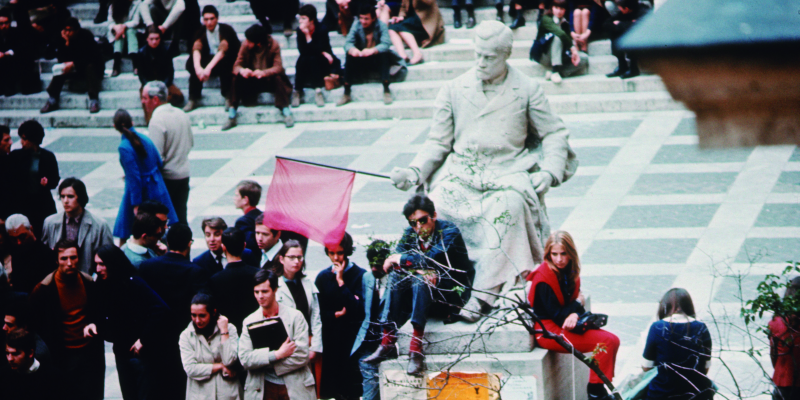The events of 1968 have become a myth, for which various interpretations are offered: was it a "revolution" or just another phenomenon in a broader crisis?
TEXT - Onésimo Díaz
Researcher and professor of "History, culture and Christianity in the 20th century" at the University of Navarra.
The 68th has been the subject of all kinds of interpretations. The events have become a myth, and it does not seem easy to analyze coldly what happened and why what happened around May '68.
In the 1960s, Western youth were uncomfortable with their parents' way of life. The baby boom generation, born in the post-World War II era, rebelled against a dull and outdated value system. These young people, educated in the economic welfare and with access to the University, declared themselves anti-conformist and contesting against all power and authority. The boys abandoned blazers and ties, and dressed in jeans and military-style jackets, while the girls exchanged high heels and long dresses for pants and miniskirts.
This generation was attracted by leftist and anti-capitalist ideas. Their main points of reference were Marx, Freud, Mao and Marcuse. Of these four, the most influential was the Jewish philosopher Herbert Marcuse, who had left the Frankfurt School after Hitler's rise to power. This professor, expelled from several American universities on charges of being a philo-communist, urged students, racial minorities and workers to fight against the established power. In 1967, he received applause and praise during lectures in Germany and France. His message, in favor of sexual liberation, found an echo in a restless sector of university students around the world. From the spring of 1968 onwards, demonstrations against the imperialist, warmongering and capitalist society followed one after the other in various Western universities. Marcuse's ideas had spread and popularized to the point of coining the slogan: sex, drugs and rock and roll. In those days, countercultural movements (hippies and rockers) incited a rebellious stance against traditional culture. Young people identified with Marcuse's nonconformist message and wanted to change everything, driven by a desire to experiment without barriers or rules.












